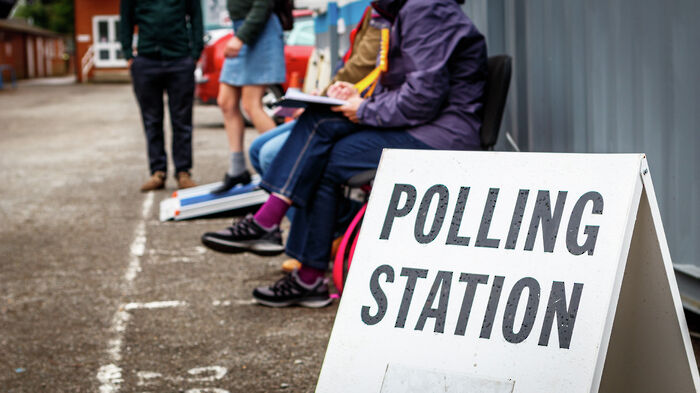Student turnout may be decisive in city council battlegrounds
Our predictions for today’s hotly-contested Cambridge city council elections

Labour’s hopes of retaining their dominance on Cambridge city council rest to a large degree on replicating the student engagement that decisively swung the campaign in last year’s general election.
Labour turned a knife-edge defeat in the county council elections, losing to the Liberal Democrats in city wards by less than a tenth of one per cent of the vote, into a resounding victory just a month later by attracting new voters. Of the 23,000 voters who voted in the general election having abstained at the local election, close to three quarters backed Labour. As voters head back to the polls on Thursday, recapturing the strong student turnout from 2017 is likely to be decisive in Labour’s bid to further strengthen their hand.
Labour will be encouraged by national polling figures, which have seen Jeremy Corbyn’s party hovering around the 40% figure they unexpectedly achieved last year; however, it is they who have the most work to do, as they defend ten seats at this election, compared with just four Liberal Democrat seats.

One contested seat, in Castle ward, is currently held by an independent. According to Cambridge election expert Phil Rodgers, Labour will almost certainly win the five seats needed to maintain a majority on the council, being virtually assured of victory in the safely Labour areas of Arbury, Cherry Hinton, Coleridge, King’s Hedges, Petersfield, and Romsey, while the Liberal Democrats will likely hold Newnham, Queen Edith’s, and Trumpington.

Other seats, however, are less clear cut. After a strong performance in Abbey ward at last year’s county council elections, the Liberal Democrats will be hoping to win the seat this time around, while Labour will be hoping for a repeat of their recent success in West Chesterton, where, after two narrow defeats in 2014 and 2015, they won a city council seat in 2016. Unusually, two seats are being contested in East Chesterton due to a mid-term resignation, creating the interesting possibility of a split result.
The most interesting battlegrounds are likely to be the student-heavy Castle and Market wards, which between them contain nineteen of Cambridge’s colleges.
The most interesting battlegrounds are likely to be the student-heavy Castle and Market wards, which between them contain 19 of Cambridge’s colleges. With no independent candidate running to replace Marie-Louise Holland, who is standing down at this election, Castle is the best chance for either Labour or the Liberal Democrats to gain a seat, and a close result is expected.
Market has produced some extremely close results in recent years, including in 2015 where the Green Party pipped Labour and the Liberal Democrats in a contest where just 13 votes separated first and third places. This year, Emmanuel College dean Revd. Jeremy Caddick, is standing for the Greens in Market, and Henry Mitson, a student at Gonville & Caius, is the Conservative candidate. Another wafer-thin majority is almost certain, but who will come out on top is anyone’s guess.
Labour will struggle to mobilise students to the extent that they managed to in the general election, but if they can get close it is plausible that they will win all six battleground seats, and possibly even capture Newnham ward, which contains nine colleges; however, ex-mayoral candidate Rod Cantrill remains the favourite to hold on in the Lib Dem stronghold. Conversely, a good day for the Liberal Democrats might see them hold on to West Chesterton, win in Castle, and take Abbey or East Chesterton from Labour.
With the possible exception of a surprise win for the Greens in Market, the prospect of anyone other than Labour or the Liberal Democrats winning a seat is extremely unlikely - the Conservatives having faded in recent years in Trumpington ward, their only realistic prospect, and the ward in which they most recently held a seat, which was lost in 2016. Any second place finishes would be judged a success for the Tories, who have not been a serious factor on the City Council for more than 20 years.
 Arts / Plays and playing truant: Stephen Fry’s Cambridge25 April 2025
Arts / Plays and playing truant: Stephen Fry’s Cambridge25 April 2025 News / Candidates clash over Chancellorship25 April 2025
News / Candidates clash over Chancellorship25 April 2025 Music / The pipes are calling: the life of a Cambridge Organ Scholar25 April 2025
Music / The pipes are calling: the life of a Cambridge Organ Scholar25 April 2025 Comment / Cambridge builds up the housing crisis25 April 2025
Comment / Cambridge builds up the housing crisis25 April 2025 Comment / Pick an exam format and stick to it25 April 2025
Comment / Pick an exam format and stick to it25 April 2025







